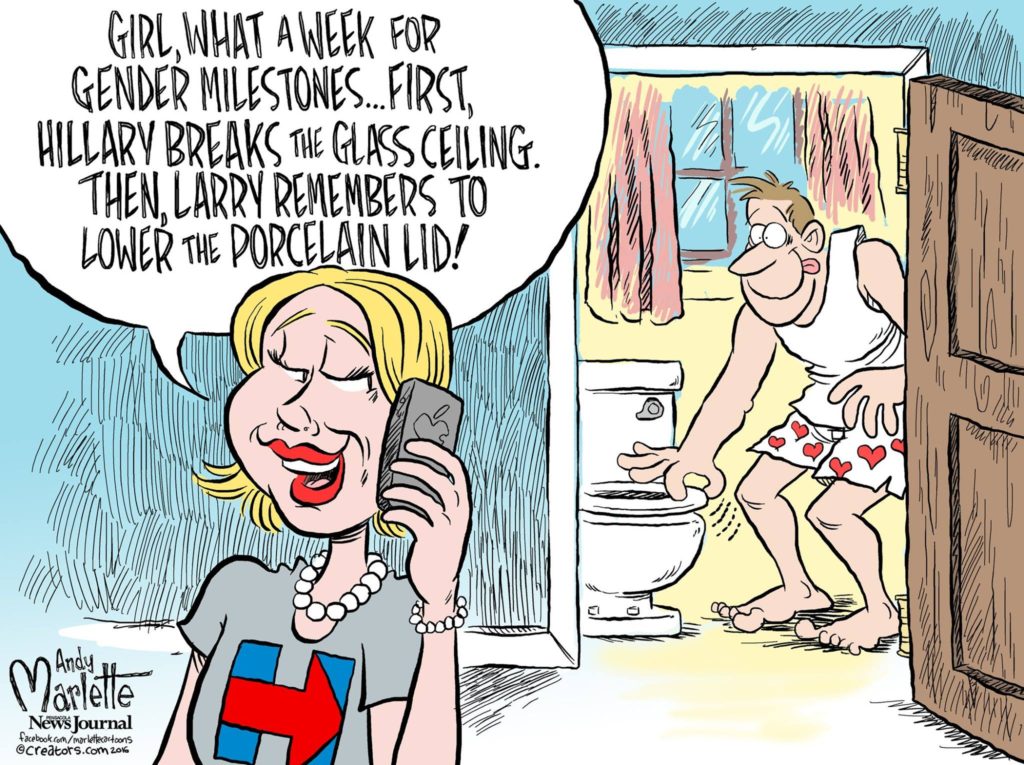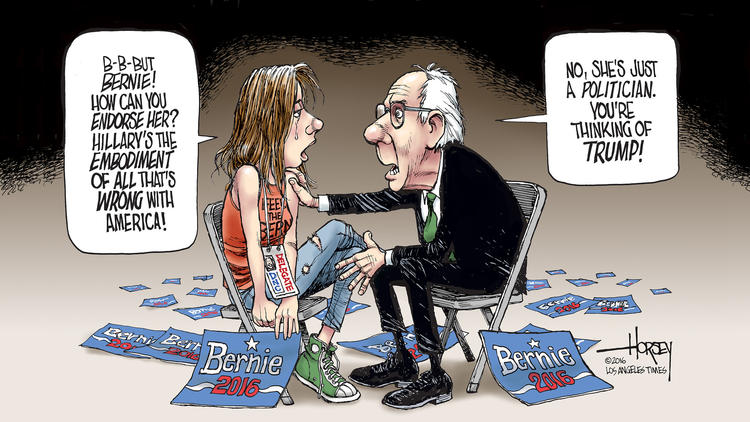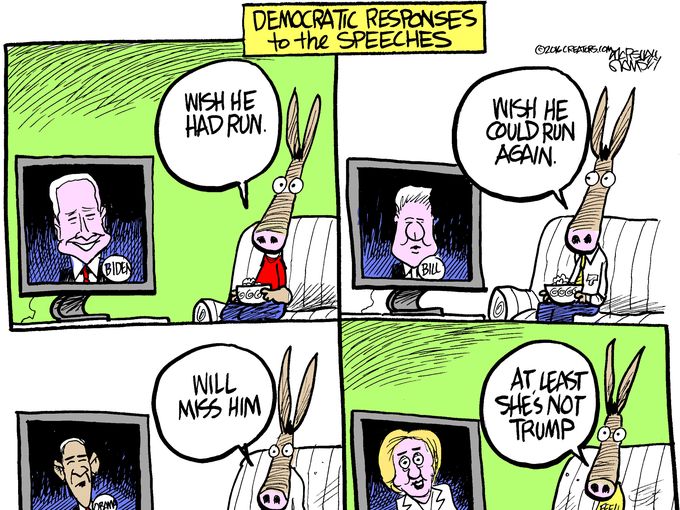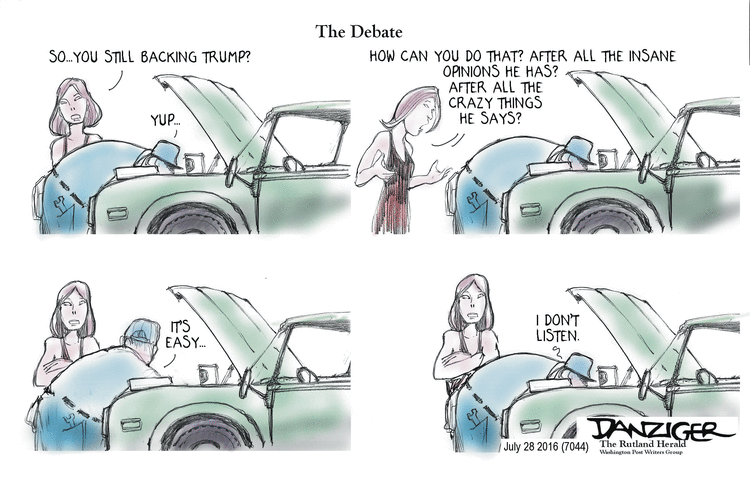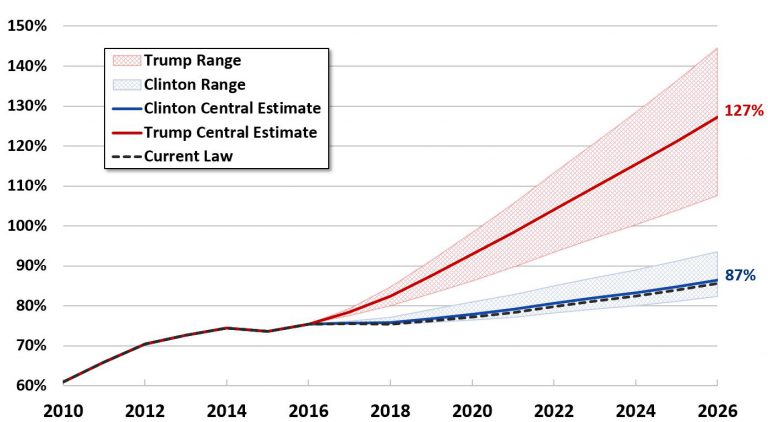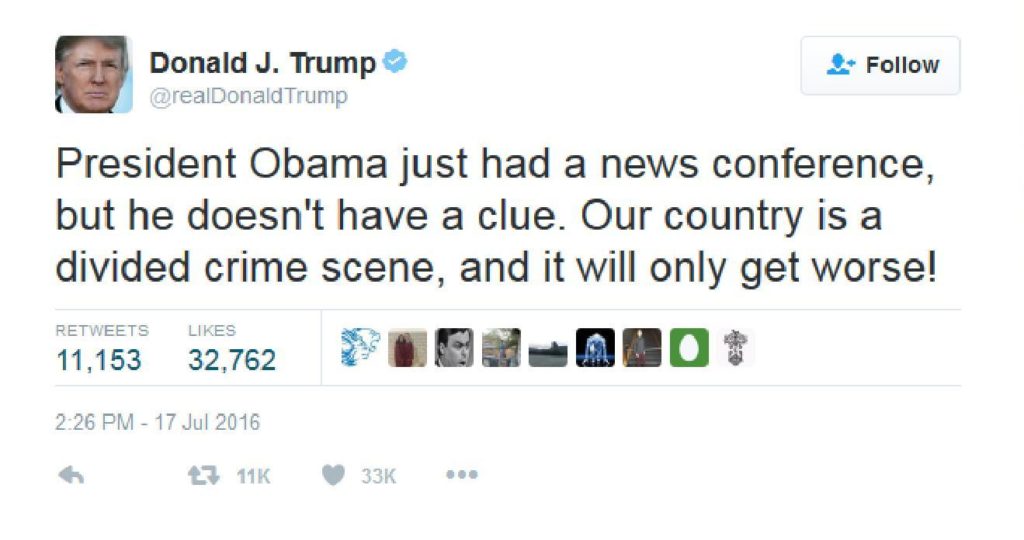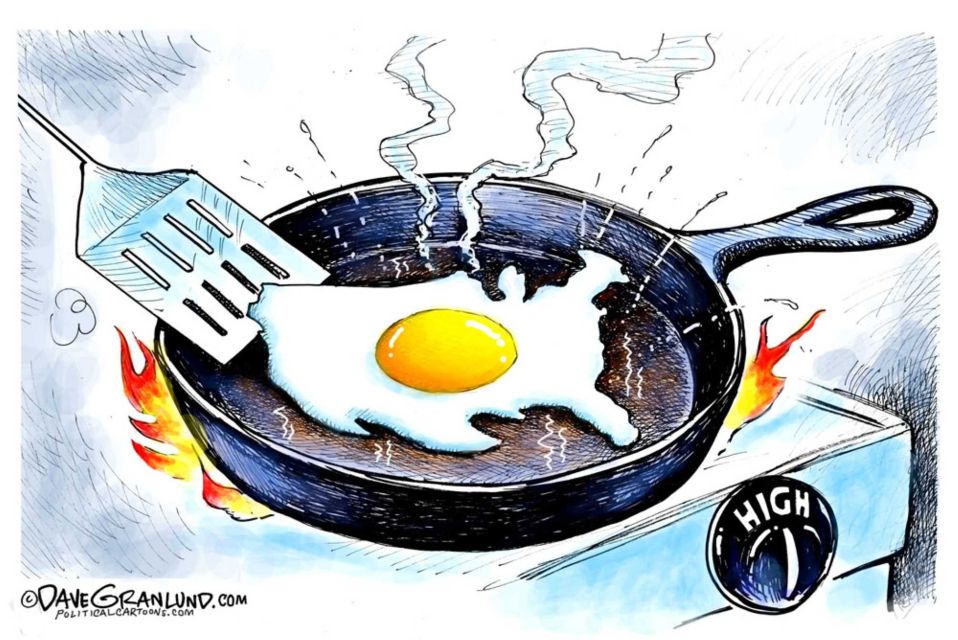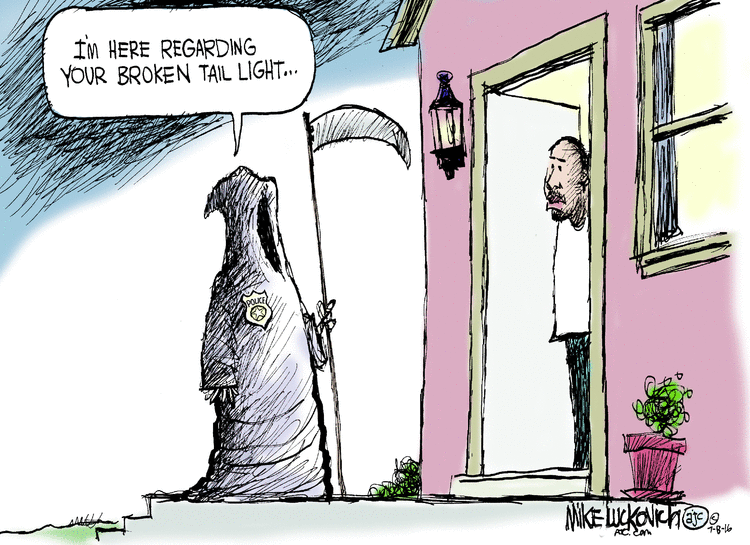Neil Irwin at the NYT compared the Clinton and Trump tax plans. Hillary’s raises taxes on the rich, and adds ~$1.1 Trillion to federal tax revenues over the next 10 years. The Pant Load’s plan is under revision (again), but, his old plan reduced revenues by ~$9.5 Trillion over the same period, and while his new plan will probably cost less, it will still create red ink.
Jared Bernstein had a few points which you might not have picked up on:
…the plan is pure, old-fashioned, supply-side, trickle-down orthodoxy. How that squares with Trump’s play for disaffected working class voters hurt by globalization is left as an exercise for the reader.
Bernstein’s best point is about the “pass-through” income loophole Trump creates. His new plan sets the top income tax rate at 33% but creates “a much lower rate than 33% for a substantial number of very-high-income households by allowing people to pay a new low rate of 15 percent on “pass-through” income (business income claimed on individual tax returns). According to the Tax Foundation, pass-through businesses now earn more net income than traditional “C” corporations (like GE or Ford). So of course, Republicans want to lower their tax rates. More from Bernstein:
More than two-thirds of all pass-through business income flows to the top 1 percent of tax filers.
And it will probably get worse: When you can pay a lower rate on a particular type of income, you will visit with a tax lawyer and set up a Limited Liability Corporation (LLC). Then off you go to the boss and say, as Bernstein points out:
“I’m no longer Joe Paycheck, I’m Joe Paycheck, LLC. Pay me the same salary but call it a consultant’s fee for services provided by my limited liability corporation”. Joe then passes that income through from the business to the personal side of the tax code and pays 15% on it.
Where Joe might have formerly paid as much as 39.5%. This will allow the hedge fund and private equity guys to move from paying a mere 24% that they pay on earnings today to 15%, if Trump gets the GOP-led Congress to go along.
Trump also wants to repeal the estate tax. Like the prior “improvement”, this one will benefit the Donald personally. The estate size that must pay estate taxes today is $10.9 million. So if a couple has an estate smaller than that, they pay no estate tax. How many are paying it? Only 0.2% of estates (that’s 2 in a 1,000) pay it today.
So none of these are the “small family businesses” and “family farms” that Republicans whine about. If you have the better part of $11 million in assets, you ain’t that small.
A minute more on the LLC: LLCs were created by Congress to give owners of businesses the ability to avoid “double taxation” on taxable income they receive from their businesses. The theory is, business income from a C corporation is taxed twice: once at the corporate level and again at the personal level when dividends are paid to owners. Businessmen could have avoided double taxation by simply operating their businesses as proprietorships or general partnerships. But then they would lose the limited liability protection from creditors that C corporations and limited partnerships provide.
So Congress created the LLC hybrid to enable businessmen to have their limited liability cake and eat it too. But you don’t get the same deal: Wrongo and Ms. Right have paid into Social Security for over a combined one hundred years. Along the way, we could not deduct our yearly SS contributions, which means we paid income taxes on the income that we used to make our contributions. Now that we are receiving Social Security payments, we pay federal and state income taxes again on the payments we receive.
If we use some of our Social Security income to buy gas, we are taxed again in federal and state motor fuel taxes. Same when we buy goods and services, and pay state sales taxes.
Double, triple and quadruple taxation are pervasive throughout our economy, but it’s only the average Joes that pay them. So no tears for Mr. Trump, the Kochs and “job creators” who say they need a break from double taxation.
Or maybe ask your Congressperson for a similar break for you.
Trump is cutting taxes for the rich. If you think he is gonna help the middle class, he is hoodwinking you. You may see a few pennies in tax cuts while the rich take in extra millions to buy bigger, better penthouse apartments.
Meanwhile, the roads and bridges that you use to get to work will crumble even further, because he’s planning to give away the store. Paying your taxes is extremely important and new rules will mean a new way of getting this done, so before you worry, take a look at a tax planning Winnipeg lawyer or one in your state to discuss on how you can plan out your taxes better and keep up to date with any changes.


